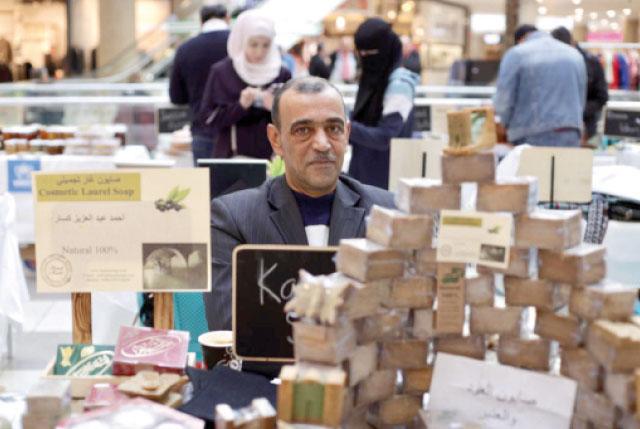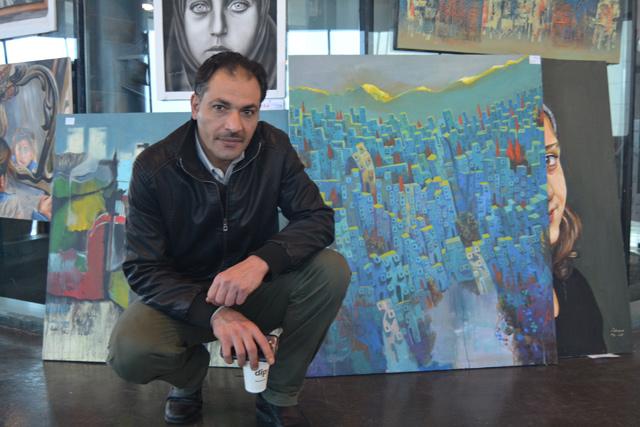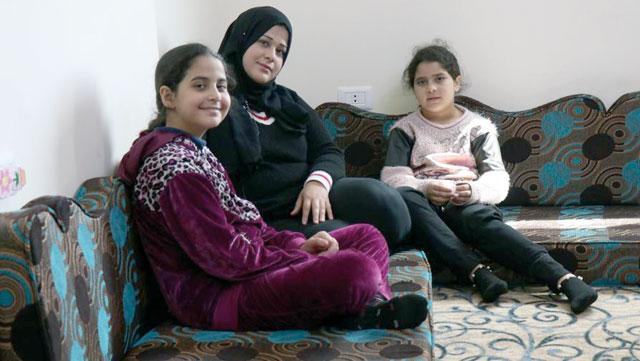You are here
Refugees craft wares for UNHCR Winter Bazaar
By Johanna Montanari - Dec 06,2019 - Last updated at Dec 06,2019

UNHCR’s #WithRefugees Winter Bazaar is selling handmade products by refugees at Galleria Mall in Amman on Friday and Saturday (Photo courtesy of UNHCR)
AMMAN — The UNHCR’s #WithRefugees Winter Bazaar, showcasing handmade products by refugees, opened at Galleria Mall in Amman on Thursday.
The bazaar’s products include arts, accessories, food, handicrafts, home decorations, paintings and more, according to the organisers.
“There are around 14 refugee artisans from a variety of nationalities; Syrians and Iraqis mainly,” Lilly Carlisle, UNHCR Jordan spokesperson, told The Jordan Times on Thursday.
This is the UNHCR’s third annual Winter Bazaar, being held for the first time at Galleria Mall, according to Carlisle.
“At UNHCR we often have refugees approaching us who are making things at home or have ideas for businesses they want to start, but they just don’t have that many opportunities to sell them. It’s difficult,” she explained.
“We thought that creating these bazaars would help, and the response has been amazing,” the spokesperson said, adding that in addition to the winter bazaars, the UNHCR also organises summer bazaars and similar events for other occasions.
“The bazaar is a really good opportunity for everyone to come together to showcase what they do and an opportunity for them to make an income,” the spokesperson noted, adding: “It is great to see the interest in what the refugees are doing here.”
The Bazaar is open this Friday between 2pm and 10pm and Saturday between 10am and 10pm
Related Articles
AMMAN — As of Wednesday, refugee artisans from across Jordan have the opportunity to sell their handcrafted products for a week at a shop su
AMMAN — Refugees from five different countries gathered on Thursday for the start of the UN agency’s #WithRefugees Winter Bazaar.Handmade cl
AMMAN — Following a surge in donor activity over the last month, the UNHCR’s 2019 operations in the Kingdom are 44 per cent funded as of the













